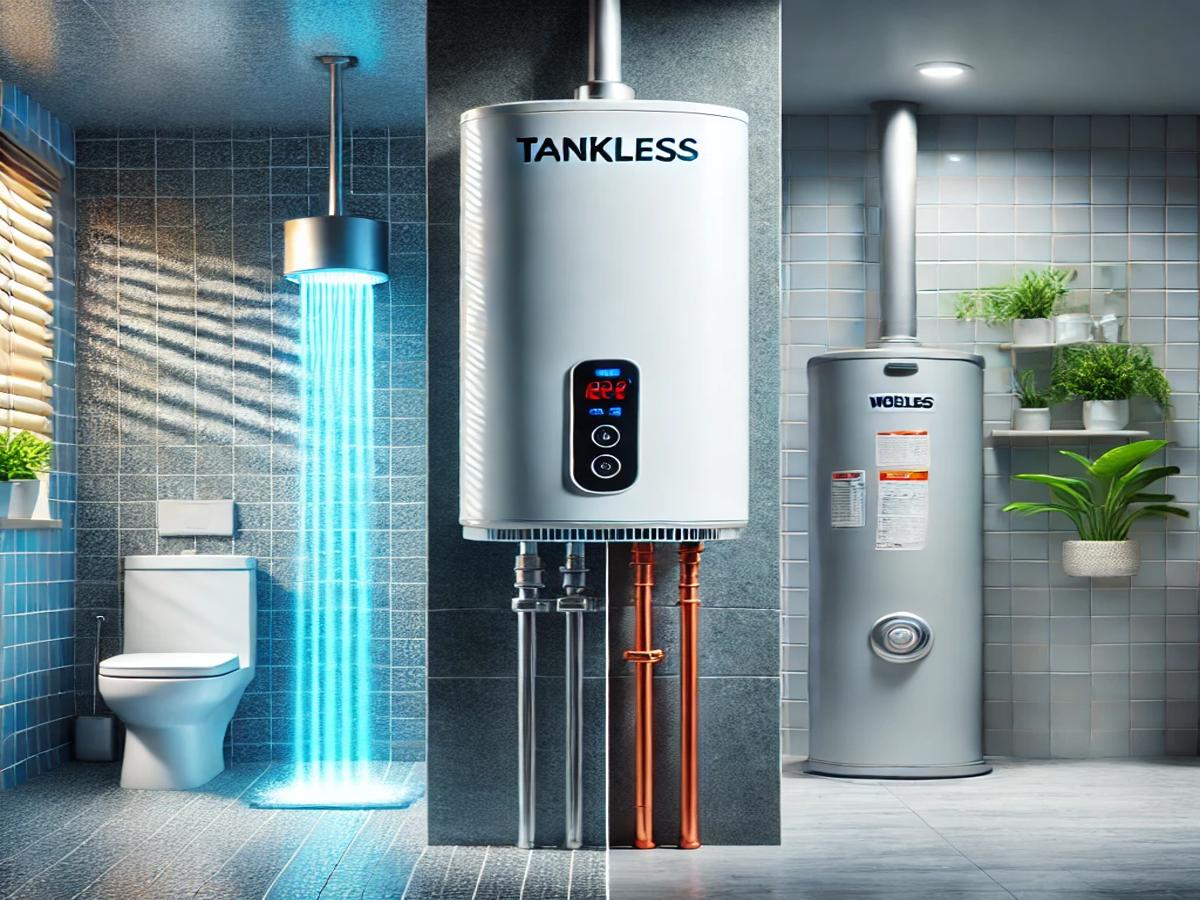Introduction
Choosing the right water heater for your home can be a game-changer in terms of energy savings, efficiency, and convenience. Should you stick with the traditional storage water heater or go for a more modern, tankless option? Let’s explore the differences to help you make an informed decision.
Understanding Water Heaters
What is a Traditional Water Heater?
A traditional water heater, also known as a storage water heater, consists of a large tank that stores and continuously heats water to a set temperature. When hot water is needed, it is drawn from the tank, and the heater refills and reheats the water.
What is a Tankless Water Heater?
A tankless water heater, also called an on-demand water heater, heats water only when needed. Instead of storing water in a tank, it uses heating elements to rapidly warm the water as it passes through the unit.
How They Work
Traditional Water Heaters
Traditional water heaters function by keeping a supply of hot water ready for use at all times. However, this leads to energy loss, as the heater has to keep reheating water even when not in use.
Tankless Water Heaters
Tankless water heaters heat water on demand, reducing standby energy loss. They use gas burners or electric elements to heat water only when needed, providing a continuous supply without requiring a storage tank.
Pros and Cons of Traditional Water Heaters
Advantages
- Lower Initial Cost – Traditional water heaters are more affordable upfront.
- Simple Installation – They do not require major modifications.
- Availability – Commonly found in most homes, making repairs and replacements easier.
Disadvantages
- Higher Energy Consumption – Since they keep heating water, they use more energy.
- Limited Hot Water Supply – The tank size determines how much hot water is available.
- Bulky Size – Requires more space for installation.
Pros and Cons of Tankless Water Heaters
Advantages
- Energy Efficient – Only heats water when needed, reducing energy bills.
- Unlimited Hot Water – No risk of running out of hot water.
- Compact Design – Saves space compared to bulky traditional tanks.
Disadvantages
- Higher Upfront Cost – More expensive to purchase and install.
- Requires Modifications – May need updated plumbing or electrical work.
- Limited Simultaneous Use – If multiple taps are in use, it may struggle to provide enough hot water.
Cost Comparison
Initial Costs
Traditional water heaters cost around $500–$1,500, whereas tankless water heaters range from $1,000–$3,000.
Installation Costs
Traditional models are cheaper to install ($500–$1,000), while tankless units can cost $1,500–$4,000 due to additional modifications.
Long-Term Savings
Although more expensive upfront, tankless water heaters can save you money over time through lower energy bills.
Lifespan and Maintenance
Traditional Water Heaters
Lasts 10–15 years with regular maintenance such as flushing to prevent sediment buildup.
Tankless Water Heaters
Lasts 20+ years but requires descaling and occasional component replacements.
Energy Efficiency and Environmental Impact
Tankless water heaters are 24–34% more energy-efficient than traditional ones, leading to a lower carbon footprint and reduced energy bills.
Space Requirements
Traditional water heaters require a dedicated storage space, whereas tankless models can be mounted on walls, saving significant room.
Which One is Best for Your Home?
- Large Households – Traditional heaters may be better for high simultaneous demand.
- Smaller Homes & Apartments – Tankless units are space-saving and efficient.
- Budget-Conscious Buyers – Traditional models cost less initially.
- Energy-Conscious Homeowners – Tankless models provide better long-term savings.
Conclusion
Both traditional and tankless water heaters have their strengths and weaknesses. If you want a lower upfront cost and simple installation, a traditional heater is a solid choice. If you prefer energy efficiency and unlimited hot water, a tankless system is worth the investment.
FAQs
- Which type of water heater lasts longer?
Tankless water heaters last about 20 years, while traditional models last 10–15 years. - Is a tankless water heater worth the investment?
Yes, it saves energy and provides unlimited hot water, making it cost-effective long-term. - Do tankless water heaters require special maintenance?
Yes, they require periodic descaling to remove mineral buildup. - Can a traditional water heater be upgraded to tankless?
Yes, but modifications to plumbing and electrical systems may be needed.


